Pathfinder: Wrath of the Righteous review | PC Gamer - crabtreerapen1993
Our Verdict
A long game of choose-your-own-chosen-nonpareil with high highs to balance the lows.
PC Gamer Verdict
A long game of prefer-your-have-chosen-one with commanding highs to balance the lows.
Need to bang
What is IT? An archaic-intentional RPG so dense IT's got gravitational pull.
Expect to pay $50/£43
Developer Owlcat Games
Publisher Meta Publication
Reviewed along Windows 10, Intel Core i7, 16GB RAM, Nvidia GTX 1060
Multiplayer? No
Out At present
Link Administrative body place
The prototypical boss fight in yellow-school RPG Pathfinder: Wrath of the Righteous is the character creation carte. It's arsenic daunting as any multi-limbed demon you'll face.
There are 25 classes to choose from, around subdivided into half a dozen archetypes. There are prestigiousness classes you terminate't select until you've leveled up and fulfilled certain requirements, which display up during theatrical role creative activity anyway in case you want to plan your build around nonpareil. You also choose a race, racial inheritance, screen backgroun, religion, skills, feats, and maybe an lizard-like associate, which gets its own classify, skills, and feats.
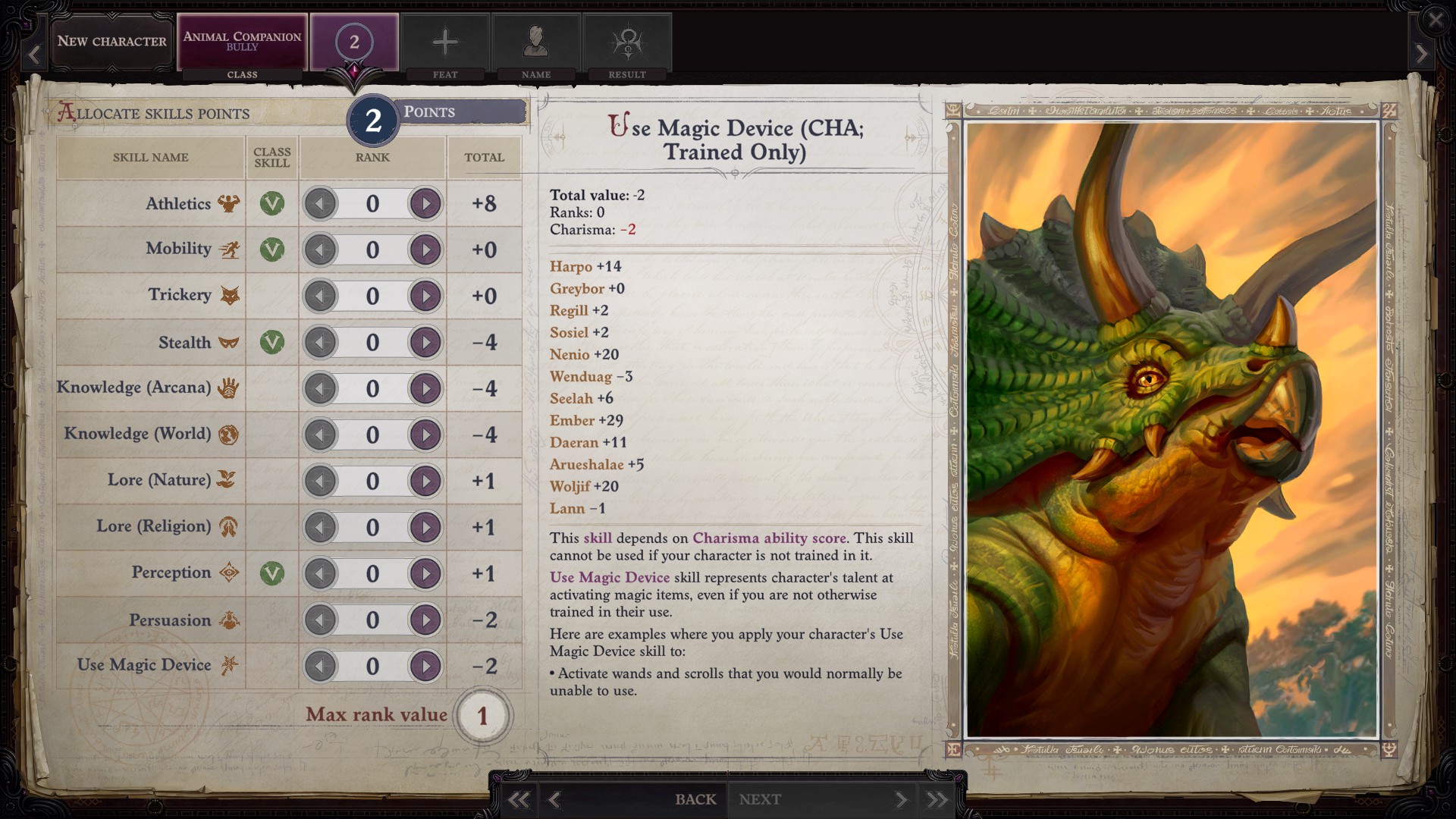
At the end of this process you may well fetch up with a character World Health Organization is completely inappropriate for getting what you desire out of Wrath of the Righteous and, several hours later o, wish to restart or respec. Maybe they're too weak for the take exception of Core difficulty if you're keen adequate to bother with that, maybe they double over with an embryonic companion and feel superfluous, maybe they suffer an power that doesn't work the way you mentation and rather suck. Compared to this, fighting any big pee elemental or shadow demon seems easy.
Math of the righteous
Your character, whether a rage-high-powered bloodrider with a pet smilodon, a halfling dub who charges into struggle on a dog, or retributive an elf World Health Organization is a wizard—that's water-cooled too—is off to join a crusade against the demons of the Worldwound. Those demons marched through a hole in realism geezerhood agone and have been fashioning a mess of the place ever since. One of these days, you'll become the campaign's commander and a mythic fighter with marvelous powers.
This happens in an isometric RPG that evokes Baldur's Gate indeed powerfully sometimes I walk low-level a patch of fall leaves and think I'm endorse happening the Sword Sea-coast. If you played Guide: Kingmaker you'll make up familiar with the effect, though this isn't a sequel to Kingmaker and is in fact a better entry to the Scout rules. Developer Owlcat Games has learned that tutorial pop-ups are a good thing, and boxes of text will warn if you equip items with bonuses that don't stack or otherwise jackass up the arcane rules of the tabletop RPG it's supported.
Better tutorials make combat's flow of numbers a little easier to follow with, though it could be presented better. (I will go to the grave non perceptive wherefore it shows the unmodified results of dice rolls next to the difficulty object they have to beat, rather than showing the modified number that actually gets compared to the trouble.) Some other thing that smooths out combat is the pick to switch between turn-based and realtime-with-pause mode, even middle-battle. You prat go turn past turn when tackling bosses, surgery pickings out the asshole alchemists nerve-wracking to burn down your local pub by throwing firebombs at it, then exchange to RTWP when you're mopping up cultists or other filler. (In that location's very much of filler.)
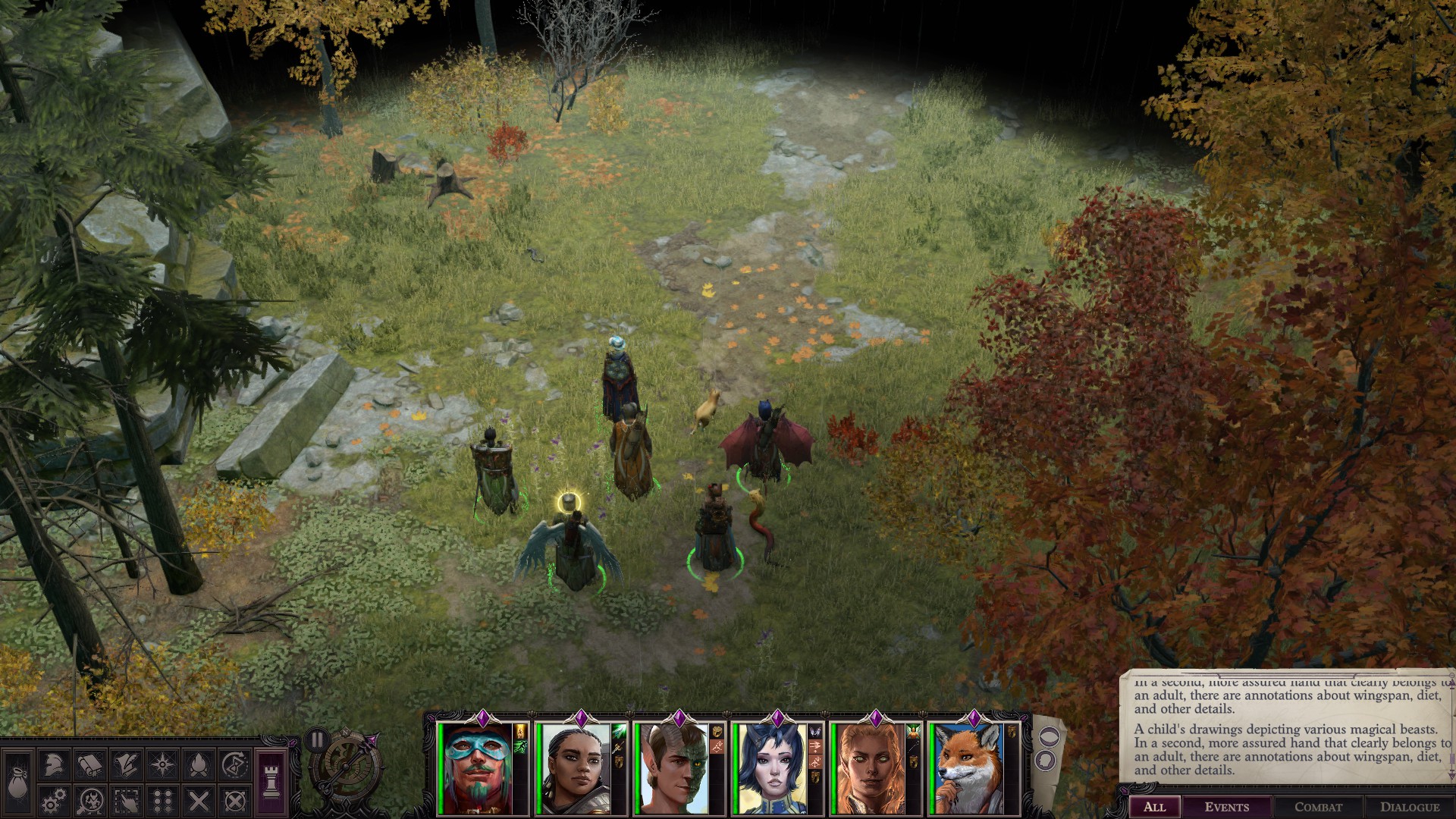
Heroes of Might & Tragic
While those pop-ups are eager to help with combat and leveling, they thin out once you're handed whole armies to manage. In an underexplained side gimpy, your crusaders fight down on a grid patc their oversized general looks on from the left and at times casts a spell, like that one person in all radical project who acts like they're contributing just International Relations and Security Network't really pull their weight, throwing some shine across the paperboard while the actual soldiers fight and go.
This strategy stratum is a substantial and demanding timesink. You have to chip off at units representing hundreds of troops for turn after turn, long after IT's obvious you've South Korean won. Once I figured out the best tactics—ignoring opportunities to collect handfuls of unuseable specialists who just clutter the map in prefer of building doomstack units of high-price troops several hundred deep, then encampment archers in the corner surrounded away knights—it stopped up being much a hassle. It even became a pleasant change of rate, a exquisitely if slight imitation of Heroes of Might & Magic. Maybe the mediocrity of the last two actual Heroes of Might &ere; Charming games has lowered my standards.
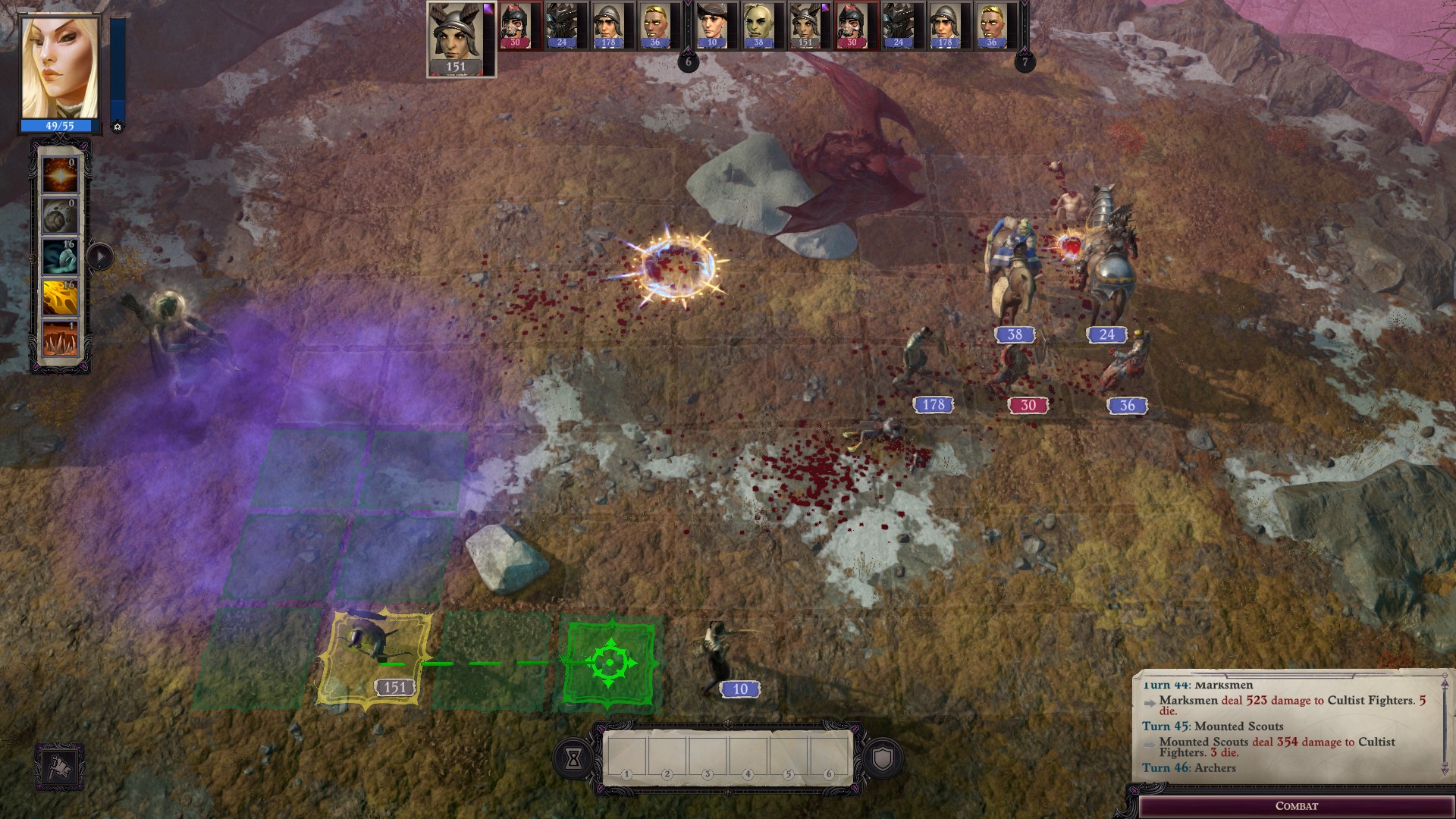
As well every bit managing the crusade, you finish up governing different regions of the map out in a adaptation of the kingdom management system from Kingmaker. It doesn't consume that game's constant flow of disasters to deal with, though, and the buildings you plank down in settlements are more useful, which is a explicit betterment. In Kingmaker, most of them felt ilk traps for new players to waste resources on. Another improvement is that when you're deciding which decree to pass, whether throwing a parade to raise esprit de corps or sacrificing a couple of hundred soldiers in a magic experiment, the results are spelled out expressly. You won't fall cardinal of those brave-ending death spirals that the opaqueness of Kingmaker led to.
These direction systems are the bread in a sandwich with your actual adventuring in its middle, and that adventuring is tasty. Sidequests have surprising outcomes, and the main storyline takes you to besieged cities, wastelands where it rains profligate, and smooth the Abyss itself, which is like Perdition's sr. brother who is flatbottomed more into heavy gilded. You may be a social reformer, but you're besides a espy who goes undercover in another dimension, too Eastern Samoa a mayor with council meetings to attend.
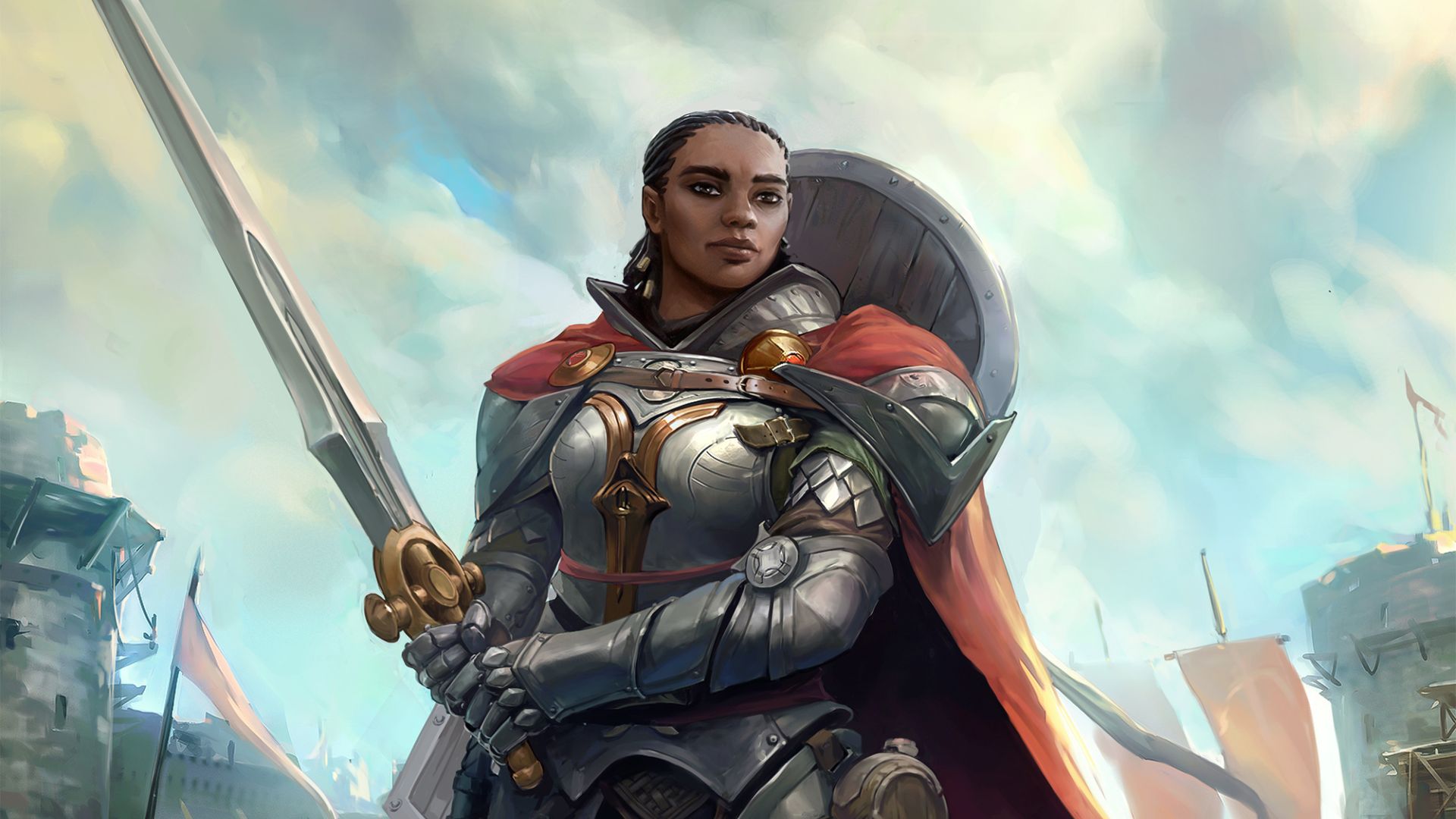
Party of six
I surmise each keep company will be someone's favored, whether they prefer the ones who subvert stereotypes (a paladin who loves imbibing and chill hangs, a pragmatic victory-at-any-cost hellknight who is also a gnome), Oregon the ones so exaggerated they came straight from anime central casting (a crone-girl whose pure innocence makes cultists change their ways, an analytical sensation who treats people like science experiments).
Performance
Wrath of the Righteous runs finer than Kingmaker, and saving and consignment are both much faster. The framerate dropped importantly in super cities (extraordinary ready-made of spinning floating islands in particular), and turning down the shadows and SSAO only partially improved things. For some reason the framerate takes a dive when enemies die too, which makes the end of all fight a lurch.
The dialogue frequently references the choices you ready-made in type creation, even which god you follow, and the companions give with their thoughts as you decide WHO to side with and whether to be a jerk or not. It's crinkled though, going from paragraphs of evocative demonic grotesquerie and twisty pluck-a-path storybook sequences to NPCs blandly spit up long backstories, with the occasional doom that reads like it was mangled by Google render.
And completely that dynamic dialogue makes moments that miss specificity stick impossible. In a sidequest involving elven political sympathies full of bespoke references to my character also being an ELF, an inescapable dialog option had me call an NPC "elf" in some respects every number as artificial as if I called you "human". Meanwhile, incognito in a fiend city, I was labeled a "mystery knight" even though I was an extravagant barde in a domino dissemble and noisy chapeau. That openhearted of stuff happens fair-minded frequently enough to be distracting.
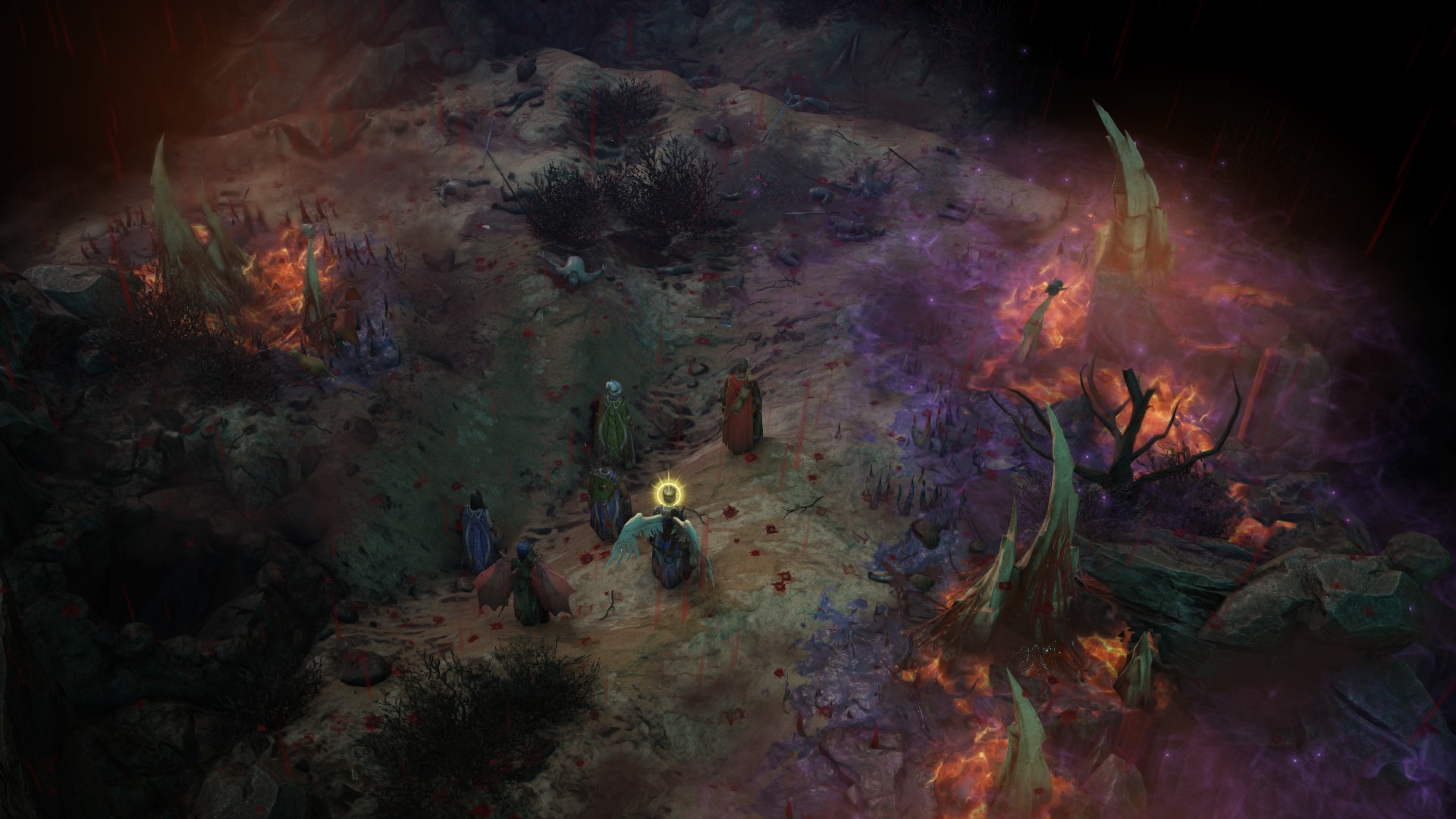
Attain and myth
The mythic paths are uneven too. These routes to demigodhood are sprinkled end-to-end Wrath of the Clean-handed, and when you choose one it bolts another layer of leveling on top of the complicated character you've made. These can turn you into anything from a daimon to an avatar of police who is basically a time-travelling Judge Dredd, and you get an option to switch to another mythic path as you go. Around are tightly integrated with the rest of the unfit, suchlike the holy person way, where others feel like afterthoughts. The cheater's whole deal is handing out square 'ironic' punishments at the close of quests, a deflating drawing string of jokes that aren't funny, while the lich's pith ability to raise dead soldiers is so underpowered it actually makes crusade mode harder.
Then at that place are the bugs. While I didn't gain many a in the early chapters, later on they were frequent. Characters got stuck on the wrong side of doors when combat started, the whole party was teleported into the ground Beaver State walls, I had to reload an preceding save because a moveable nosepiece stopped blown and left me stranded. Mounted battle seems whole humble, and whether a commove works at all is 50/50. To get past a black block out that showed up every clock I killed a specific character I had to flip to windowed modal value, but even that didn't help with a consistent crash at the end of the net dialog. (I nevertheless haven't seen the outro, aft replaying the closing quartet different ways to adjudicate to get on around the issue.) All this is nothing compared to how buggy Kingmaker was at launching, but information technology's frustrating to see problems mount up after relatively smooth beforehand chapters.
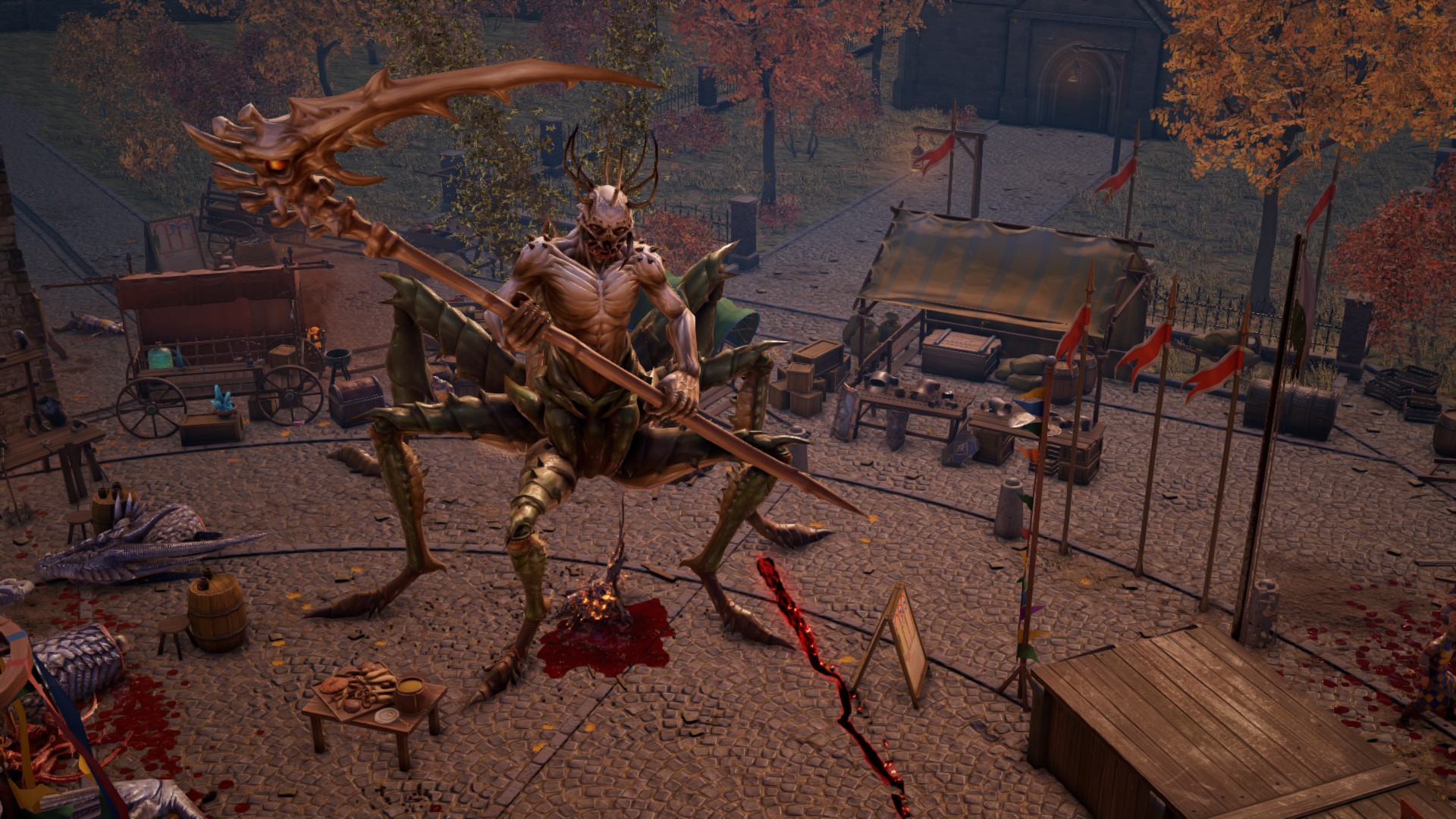
After some more patching though, Wrath of the Righteous will be comfortably worth your clock. This is a huge game, easily 100+ hours, in which you take a meticulously crafted hero, throw them into a meatgrinder of war, politics, and interplanar locomote, and see how they're reshaped aside IT. Afterward the most complicated character creation system of rules I can believe of, information technology tricks you into intelligent you're done when in point of fact the entire game is about making a character reference. That size is some its strength and helplessness, because it's got room for half-parched areas of fib and systems that feel like you've wandered off into unmapped wilderness. Just when you uncovering the right path and are solving the world's problems while jogging across W. C. Fields with your gang of colorful pals, it's like Baldur's Gate 2 ne'er ended.
Pathfinder: Wrath of the Righteous
A long game of choose-your-have-elect-indefinite with high highs to balance the lows.
Source: https://www.pcgamer.com/pathfinder-wrath-of-the-righteous-review/
Posted by: crabtreerapen1993.blogspot.com



0 Response to "Pathfinder: Wrath of the Righteous review | PC Gamer - crabtreerapen1993"
Post a Comment